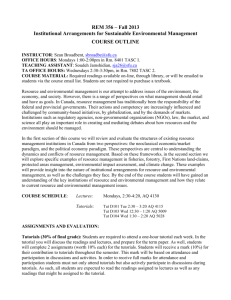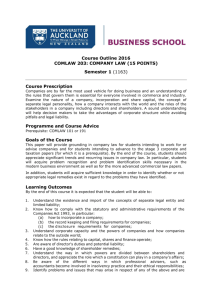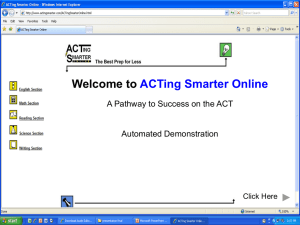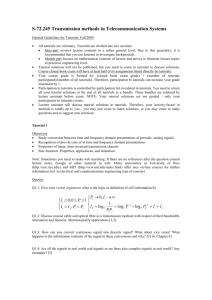Humanities 120
advertisement
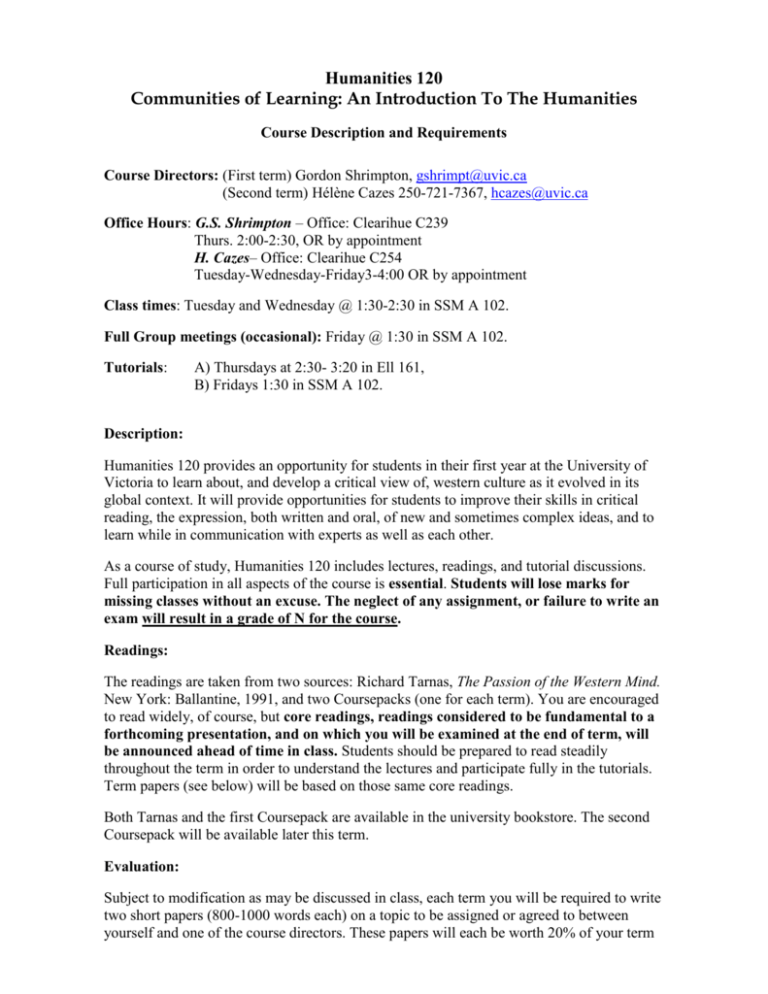
Humanities 120 Communities of Learning: An Introduction To The Humanities Course Description and Requirements Course Directors: (First term) Gordon Shrimpton, gshrimpt@uvic.ca (Second term) Hélène Cazes 250-721-7367, hcazes@uvic.ca Office Hours: G.S. Shrimpton – Office: Clearihue C239 Thurs. 2:00-2:30, OR by appointment H. Cazes– Office: Clearihue C254 Tuesday-Wednesday-Friday3-4:00 OR by appointment Class times: Tuesday and Wednesday @ 1:30-2:30 in SSM A 102. Full Group meetings (occasional): Friday @ 1:30 in SSM A 102. Tutorials: A) Thursdays at 2:30- 3:20 in Ell 161, B) Fridays 1:30 in SSM A 102. Description: Humanities 120 provides an opportunity for students in their first year at the University of Victoria to learn about, and develop a critical view of, western culture as it evolved in its global context. It will provide opportunities for students to improve their skills in critical reading, the expression, both written and oral, of new and sometimes complex ideas, and to learn while in communication with experts as well as each other. As a course of study, Humanities 120 includes lectures, readings, and tutorial discussions. Full participation in all aspects of the course is essential. Students will lose marks for missing classes without an excuse. The neglect of any assignment, or failure to write an exam will result in a grade of N for the course. Readings: The readings are taken from two sources: Richard Tarnas, The Passion of the Western Mind. New York: Ballantine, 1991, and two Coursepacks (one for each term). You are encouraged to read widely, of course, but core readings, readings considered to be fundamental to a forthcoming presentation, and on which you will be examined at the end of term, will be announced ahead of time in class. Students should be prepared to read steadily throughout the term in order to understand the lectures and participate fully in the tutorials. Term papers (see below) will be based on those same core readings. Both Tarnas and the first Coursepack are available in the university bookstore. The second Coursepack will be available later this term. Evaluation: Subject to modification as may be discussed in class, each term you will be required to write two short papers (800-1000 words each) on a topic to be assigned or agreed to between yourself and one of the course directors. These papers will each be worth 20% of your term 2 mark for a total of 40%. The first paper is due on October 14/15, and the second is due on November 18/9. Dates for the second term papers will be announced in January. There will be a sessional exam each term worth 40% of the total term mark. Do not make travel plans until the final schedule is announced by the registrar’s office. Special sittings cannot be arranged. 20% of your term mark will be based on your participation in class and especially in the tutorials. This means that you must attend classes and tutorials. You may “participate” in one of two ways, however you feel most comfortable. 1. Oral. You participate in open discussions and pose questions verbally. Criteria: Informed comments and questions will be valued much more than opinions. Be imaginative, creative, but always think of evidence to support your views. Criticize the ideas of others constructively; never aim your remarks at persons. Be relevant and concise, do not monopolize class time, think clearly, and show respect for contrary views. The instructors will keep a record of your participation and will indicate the mark we are considering for you in office hours at your request. If at that time, you have concerns about your participation, please see one of us to discuss alternative possibilities. There is at least one other approach to participation that you may wish to consider. 2. Written. You may choose to participate by submitting written comments (200 words minimum, 300 words maximum) four times per term, or after each tutorial session. If you choose this option, please notify one of the directors at your earliest convenience and no later than October 7. Without notification we will assume that you are participating orally. Criteria: The same criteria will apply as for the oral contributions. Grading: We keep numerical scores and convert them to letter grades following a ninepoint scale as outlined on page 37 ff. of the current Calendar. A+ is 90% or better. The scores for participation are calculated as follows (we’ll take the tutorials as an example): you start with 14/20 points and lose one-half point for each unexcused absence, if you attend all tutorials and make regular contributions to the discussion, you have 16/20. Contributions of outstanding quality will result in extra points up to the maximum of 20. Remember that skipping a class will also result in the loss of one-half mark from your total participation mark. Integrity: Please, see the regulations regarding academic integrity in the current University Calendar. Privacy: You are entitled to have your grades released to you in privacy. We add comments and marks inside essays and towards the back. Any special concerns you may have should be discussed with one of the directors as soon as possible. GSS: 18/08/10


